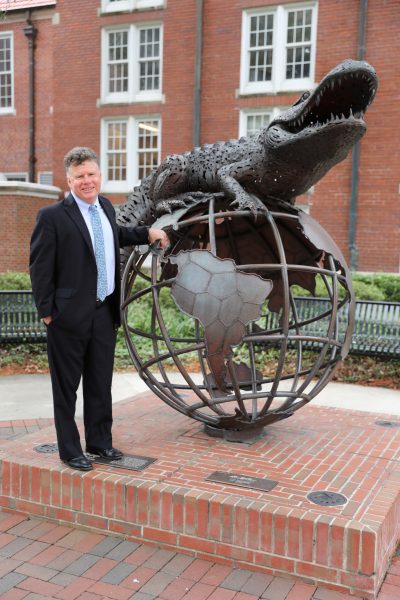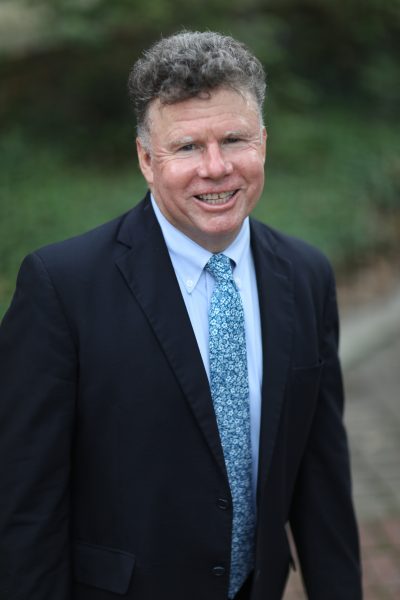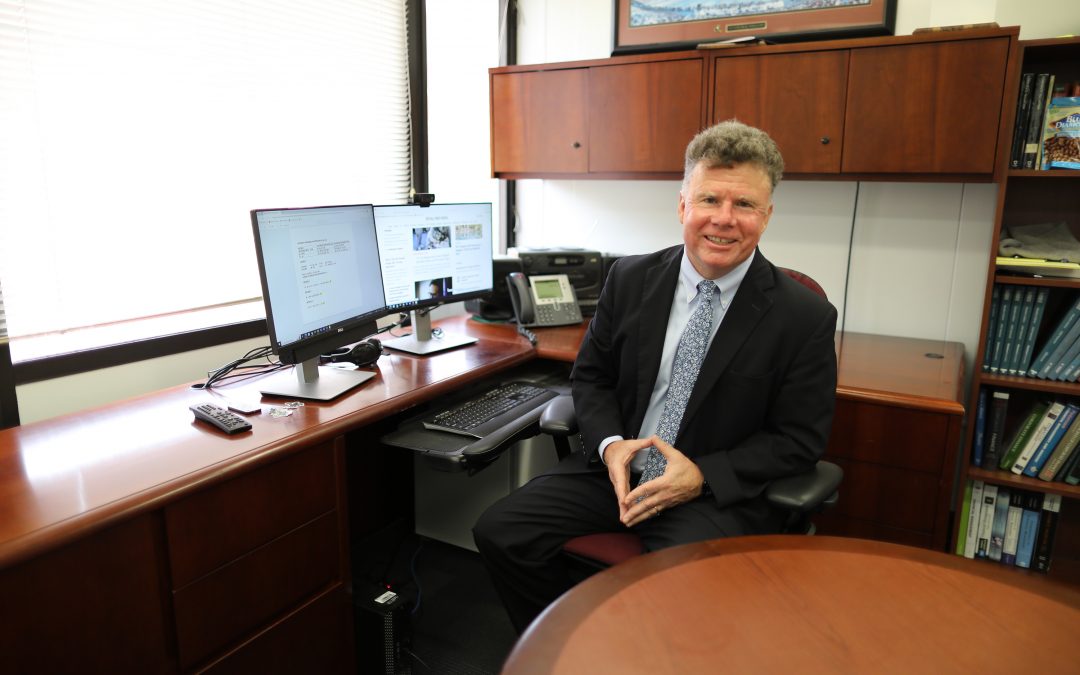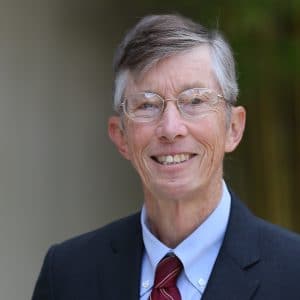The art and science of finance
In this edition of our Faculty Spotlight series, Dr. Joel Houston shares his career journey to becoming a professor and faculty member at the Warrington College of Business and the valuable lessons he seeks to impart to his students.
If you’re an alumnus of or current graduate student at the University of Florida Warrington College of Business, odds are you’ve taken a class with Dr. Joel Houston, Eugene F. Brigham Chair in Finance. Houston’s passion for finance and dedication to his students make his classroom a memorable experience. When he started his vocation, though, he had no idea he’d receive fulfillment from a career in academia.
Right after graduating from a small college in Pennsylvania, Houston entered the Business Economics doctoral program at Pennsylvania University’s Wharton School of Business. During his last years in the program, he accepted a job as an economist at the Federal Reserve Bank of Philadelphia. While he enjoyed the idea of spending his career there, he decided to take his program advisors’ advice apply for a few academic jobs, as well.
“We put together a short list of possible places to apply, and just as I was walking out the door my dissertation chair said, ‘You might also want to add Florida to that list,’” Houston recalled.
After a short meeting with UF, Houston was offered an interview in person. “I’m sure nothing will come of it,” he told his wife, Sherry, while packing his bags for the trip. “But it should be a good opportunity to present my work, meet some people and get away from this terrible weather for a bit.”
To Houston’s surprise, he had a great visit, and returned home to tell his wife that he thought they should consider seizing the opportunity. Sherry was immediately on board and, when the offer came, Houston accepted his first position at UF as an assistant professor.

Currently, Houston teaches two courses to business graduate students. The first is an introductory finance course, offered to full-time graduate students in FIN5437 and to students in the Executive and Online MBA programs in FIN5405. Students who take this course will experience a broad introduction to key ideas in finance.
Houston’s second course, FIN6427, is an elective valuation course, available to second-year students in the MBA and specialized masters’ programs. He described the course as having two parts: First, students will learn a variety of different models used to value any financial asset. Next, they will discuss how these models can enhance the value of businesses.
“In a lot of ways, I am quite introverted – but something happens when I enter a classroom,” he said. “I feel an immediate burst of energy and excitement. I really enjoy finance and I really enjoy students.
“I find it fun and challenging preparing lectures and exercises and delivering them to the students, but for me the real excitement occurs when the students become actively involved and we share information, experiences and laughter. That’s when the real magic occurs.”
After three decades at UF, Houston continues to be energized by the academic environment. Being a part of the ever-changing field of finance and a thriving college campus ensures that Houston’s job is never boring. In addition to the courses he is teaching this fall, Houston is involved in several research projects. Alongside his colleagues, he is studying the growing interest in environmental, social and governance (ESG) related issues, the evolution of societal attitudes towards businesses and many other topics.
“I know it is a bit of a cliché, but I really have the best job in the world,” he enthused. “I get paid to think, write and hang out with a ton of bright and interesting people. In so many ways, my career has coincided with dramatic innovations in finance and technology, and they have inspired a fascinating research environment and have generated so many interesting changes in how we teach finance.
“I know that things will continue to evolve in interesting ways in the years ahead.”
From his hard work and involvement at the Warrington College of Business, it is clear that Houston will leave a lasting legacy. When asked what lessons he wants to impart to his students, in particular, he talked about the importance of developing personable qualities alongside analytic skills.

“But perhaps more importantly, I want our students to leave with a solid understanding of the big picture, a quiet confidence in their abilities – and the humility to recognize that there is still a lot we don’t know.”




